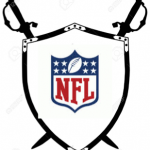 Yesterday, the NFL issued a 20-page decision upholding the four-game suspension of Tom Brady, the star quarterback of the New England Patriots.
Yesterday, the NFL issued a 20-page decision upholding the four-game suspension of Tom Brady, the star quarterback of the New England Patriots.
Brady’s agent, Don Yee, quickly attacked the decision saying the appeal lacked in procedural fairness:
“The appeal process was a sham, resulting in the Commissioner rubber-stamping his own decision. For example, the Wells investigative team was given over 100 days to conduct its investigation. Just days prior to the appeal hearing, we were notified that we would only have four hours to present a defense; therefore, we didn’t have enough time to examine important witnesses. Likewise, it was represented to the public that the Wells team was ‘independent’; however, when we requested documents from Wells, our request was rejected on the basis of privilege. We therefore had no idea as to what Wells found from other witnesses, nor did we know what those other witnesses said.”
In an article earlier today, journalist Daniel J. Flynn picked up on Yee’s criticism and questioned the NFL’s “gamesmanship.” Specifically, Flynn asked
“How can the NFL simultaneously characterize Ted Wells as “independent” and correspondence related to his investigation as “privileged” because of an attorney-client relationship?”
Great question.
The answer: I don’t think the NFL’s assertion of the attorney-client privilege will withstand legal scrutiny by the Federal Court in New York, which has been asked to affirm the NFL’s decision. Here’s why.
The Wells Investigation Likely Attorney-Client Privileged
The attorney-client privilege is the “oldest confidential communications privilege known to the common law.” It protects confidential communications made by clients, including corporate clients like the NFL, to their attorneys in order to obtain legal assistance or advice.
In the context of an investigation like the one the NFL retained attorney Ted Wells, there are two questions relative to the privilege: (1) whether Wells was serving in his “capacity of legal advisor;” and (2) wether the NFL waive the attorney-client privilege by sharing the Wells’ investigation report publicly and repeatedly touting its independence.
In this case, I think it’s fair to say that the answer to the first question is yes. When Wells conducted the investigation he was acting his capacity as an attorney and the investigation, investigation file and investigation report were, therefore, protected from discovery by Brady and the NFL Players Association. However, that doesn’t end the legal analysis.
The NFL Likely Waived the Attorney-Client Privilege
The more difficult hurdle for the NFL to overcome will be to convince the judge that it did not waive the attorney-client privilege when it shared the investigation report publicly and repeatedly assured the public that the Wells investigation was independent, full and fair.
The legal case law in this area has largely developed in the context of employment discrimination cases. In those cases, employers who invest in the expense of retaining an attorney to conduct and attorney-client privileged workplace investigation will often want to use that investigation as a defense to any subsequent discrimination lawsuit. In doing so though, they are generally held to have waived the protection of the attorney-client privilege.
Brady Should Have Been Allowed to Review Wells’ Investigation File to Test Independence of Investigation
Federal Courts in NY (where the NFL/Brady appeal is now pending) have held that employers cannot assert the attorney-client privilege while simultaneously relying on the investigation evidence and/or findings in defense of a discrimination or harassment claim. [i] In rejecting the employers assertion of the privilege in these situations, the courts have said that the employer was attempting to use the privilege and both a sword and a shield and “this it may not do.” [ii]
In reaching this conclusion, the courts have pointed out that equity requires that a plaintiff as well as the court be permitted to explore the parameters of the investigation to evaluate the adequacy, reasonableness and independence of the investigation.
Here, it seems clear, at least to this attorney, that the NFL has placed the adequacy, reasonableness and independence of the Wells investigation directly at issue. As such, Brady and the NFL Players Association should have been provided with production of the contents of the Wells investigation file, including his communications to/from witnesses interviewed as well as to/from the NFL and others consulted during the investigation process. It is only by allowing the opportunity to review the full investigation file that they can evaluate the adequacy, reasonableness and independence of the Wells investigation.
[i] See McGrath v. Nassau Health Care Corp., 204 F.R.D. 240 (E.D.N.Y. 2001); Brownwell v. Roadway Package Sys., Inc., 185 F.R.D. 19 (N.D.N.Y. 1999).
[ii] Brownwell v. Roadway Package Sys., Inc., 185 F.R.D. 19, 25 (N.D.N.Y. 1999).
_______________________________________________________________
 Workplace Investigations Group offers a National Directory of well-qualified attorneys who conduct impartial internal investigations. All of its workplace investigators have 10+ years of employment law experience and have agreed to support their responsibilities to the professional and impartial workplace investigations process and the parties that they serve. It also delivers training to in-house counsel, risk managers, human resources professionals and others on how to conduct internal investigations that will withstand third-party scrutiny. Click here for information on upcoming training in Houston, and Washington D.C.
Workplace Investigations Group offers a National Directory of well-qualified attorneys who conduct impartial internal investigations. All of its workplace investigators have 10+ years of employment law experience and have agreed to support their responsibilities to the professional and impartial workplace investigations process and the parties that they serve. It also delivers training to in-house counsel, risk managers, human resources professionals and others on how to conduct internal investigations that will withstand third-party scrutiny. Click here for information on upcoming training in Houston, and Washington D.C.

Pingback: 5 Privilege Lessons for Employers from Deflategate | WinWinHR
Pingback: Rookie Mistake: NFL Ignored Conflict of Interest | WinWinHR
Pingback: Rookie Mistake: NFL Ignored Conflict of Interest in Deflategate